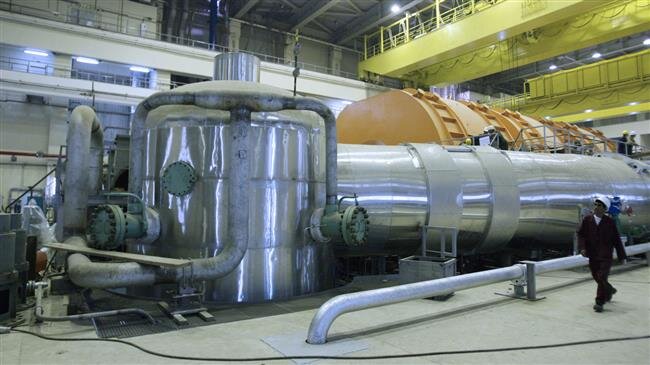Russia: U.S. ‘myth-making’ about Iran’s enrichment right

TEHRAN — Russia has said the United States is misleading the international community on Iran’s right to enrich uranium, emphasizing that such “myth-making” has long been part of the U.S. approach toward nuclear non-proliferation.
“We consider it necessary to respond to the U.S. special representative for Iran Hook about the existence of some kind of ‘UN standard’ prohibiting the Islamic Republic of Iran from enriching uranium,” the Russian Foreign Ministry said in a statement on Monday.
“Unfortunately, such myth-making has long been part of the U.S. approach toward nuclear non-proliferation ... In this case, we have, essentially, an accusation against the UN Security Council of making decisions contradicting the Treaty on the Non-Proliferation of Nuclear Weapons (NPT),” the ministry added, according to Press TV.
It came after U.S. Special Representative for Iran Brian Hook told journalists on Friday about an alleged UN resolution passed in 2006 or 2007 prohibiting Tehran from uranium enrichment.
Iran and the five permanent UN Security Council members — the United States, Russia, China, France, and the UK — as well as Germany and the European Union struck a nuclear agreement, called the Joint Comprehensive Plan of Action (JCPOA), back in 2015.
The accord came under increasing strain ever since President Donald Trump announced the U.S. withdrawal from it in May 2018 and unleashed the “toughest ever” sanctions against Iran despite worldwide objections.
On May 8, exactly one year after the U.S. abandoned the deal, Tehran announced that its “strategic patience” is over and began to partially reduce its commitments to the agreement at bi-monthly steps.
In the first stage, Iran announced that it will not limit its stockpile of the nuclear fuel to 300 kilograms allowed under the deal. On that date (May 8) Iran’s Supreme National Security Council (SNSC) said if the remaining parties to the JCPOA, especially Europeans, devise a mechanism to protect Iran from the sanctions’ effect in the two-month deadline it will reverse its decision.
But since European parties missed the deadline, on July 7 Iran announced that it has started enriching uranium to a higher purity than the 3.67%, thereby starting the second step.
Again, as Europe missed the second 60-day deadline, Iran moved to take the third step, removing a ban on nuclear research and development (R&D).
In the fourth step, which started on November 6, Iran began injecting uranium gas into 1,044 centrifuges at the Fordow nuclear site. It was done at the presence of inspectors from the International Atomic Energy Agency (IAEA).
In its fifth and final step on January 5, Iran suspended all limits under the JCPOA.
On January 14, France, Britain, and Germany confirmed that they had triggered the dispute mechanism in the JCPOA, but said they were not joining the United States campaign to exert maximum pressure on Tehran.
Foreign Minister Mohammad Javad Zarif said on Monday that if the three European countries continue their “unjustifiable conduct” and move to send Iran’s nuclear case to the United Nations Security Council, Tehran would have the option of leaving the NPT.
Zarif explained that Iran was the party to initially trigger the dispute mechanism in 2018 by sending three letters to the European Union to notify them of Tehran’s dissatisfaction with Europe’s non-commitment to the agreement. The Islamic Republic, he added, was then forced to resort to countermeasures as the Europeans remained in violation of the accord.
In its Monday statement, the Russian Foreign Ministry also said the NPT allows the signatories to develop nuclear energy for non-military purposes.
It said the NPT does not impose any restrictions on non-nuclear states in terms of uranium enrichment as long as they are under the IAEA control and pursue peaceful purposes.
“The NPT puts no limitations on the non-nuclear countries regarding uranium enrichment or developing other stages of the nuclear fuel cycle. There is only one condition: that all work must be directed toward peaceful ends and be under IAEA supervision,” the ministry added.
MH/PA
Leave a Comment